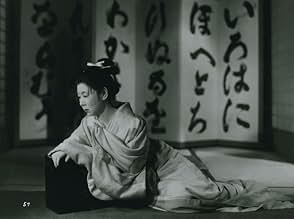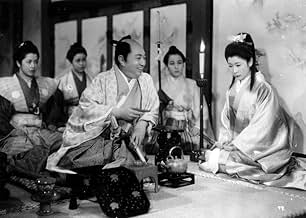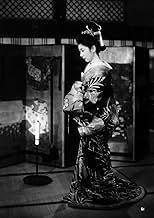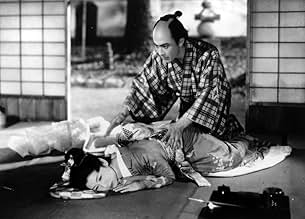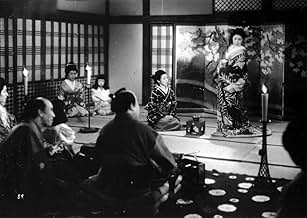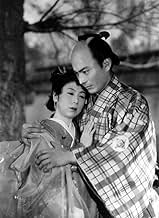IMDb RATING
8.1/10
7.8K
YOUR RATING
Follows a woman's fight and survival amid the vicissitudes of life and the cruelty of society.Follows a woman's fight and survival amid the vicissitudes of life and the cruelty of society.Follows a woman's fight and survival amid the vicissitudes of life and the cruelty of society.
- Awards
- 2 wins & 1 nomination
- Director
- Writers
- All cast & crew
- Production, box office & more at IMDbPro
Storyline
Did you know
- TriviaThis film, which was director Kenji Mizoguchi's dream project, was severely under-financed, and the production was forced to use a warehouse instead of a regular sound stage. This warehouse happened to be located near railways, and each time a train passed by, they had to stop shooting, which made the shooting of the film even more difficult with the director's obsessive use of long, continuous, uninterrupted takes. The same warehouse was also used for Josef Von Sternberg's film 'The Saga of Anatahan'.
- Quotes
Katsunosuke: Lady Oharu, a human being - no, woman - can only be happy if she marries for love. Rank and money don't mean happiness.
- Crazy creditsOpening credits shown over Japanese artwork/water-colors.
- ConnectionsFeatured in See Here My Love (1978)
Featured review
Mizoguchi's films are capable, I think, of teaching life lessons without preaching or grandstanding. This film could cause a male chauvinist to join a consciousness-raising make sensitivity group. In a simple,understated way, the film outlines the tyrannies that made happiness almost impossible for women, not only in feudal Japan, but all over the world. It comments on the use of women's bodies as sex objects and baby-making machines, with no regard for women's minds or feelings. Notice, by the way, that Oharu (Kinuyo Tanaka)is supposed to age from 18 to 50-and she really seems to age although makeup in the 1950s was not as advanced an art as it is now. The aging process is achieved through Tanaka's acting. And if she does not seem to us to be quite the ravaged old "witch" that one of her customers claims she is, then so much the better to let us know that she is being judged by an insensitive society.
- How long is The Life of Oharu?Powered by Alexa
Details
Box office
- Gross worldwide
- $6,921
- Runtime2 hours 28 minutes
- Color
- Sound mix
- Aspect ratio
- 1.37 : 1
Contribute to this page
Suggest an edit or add missing content


